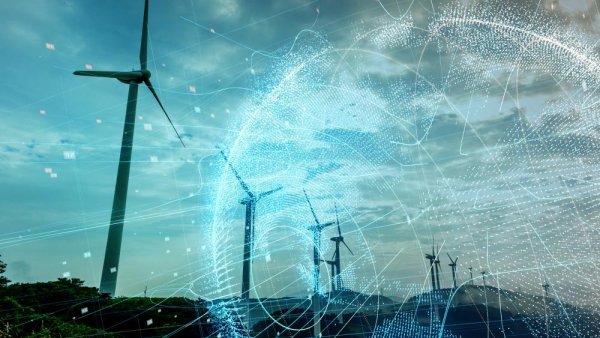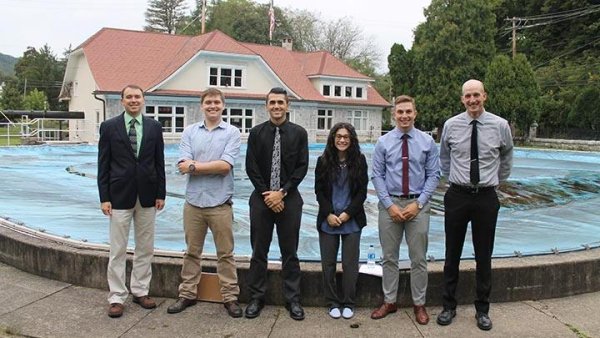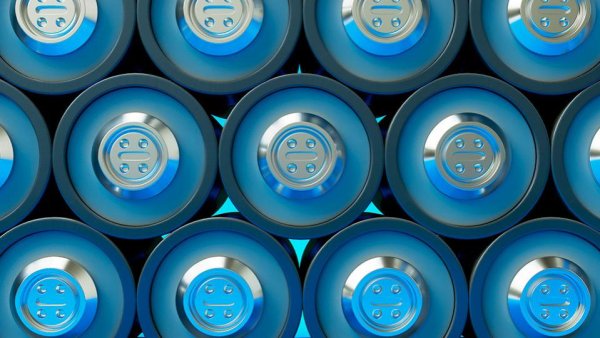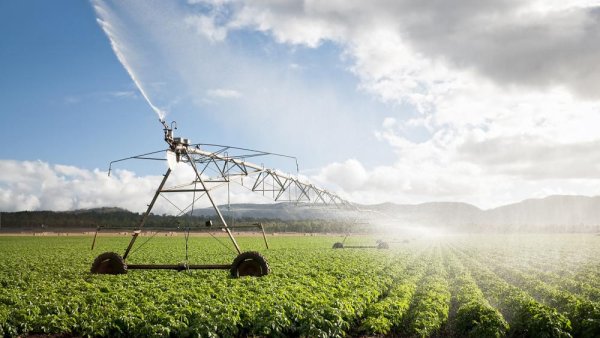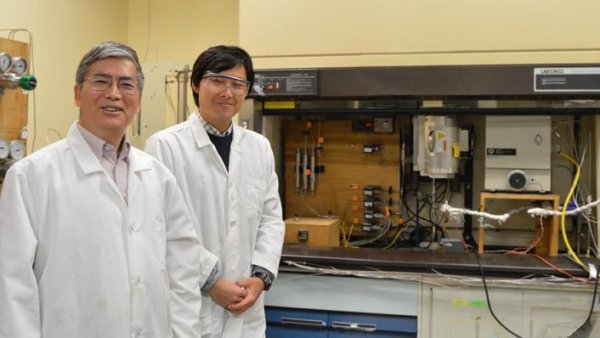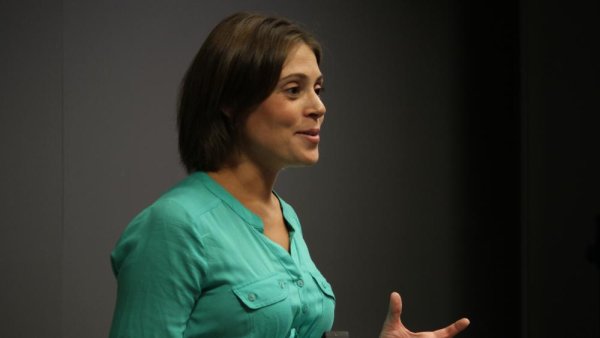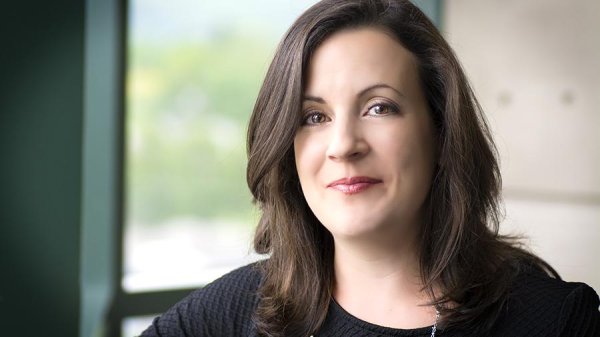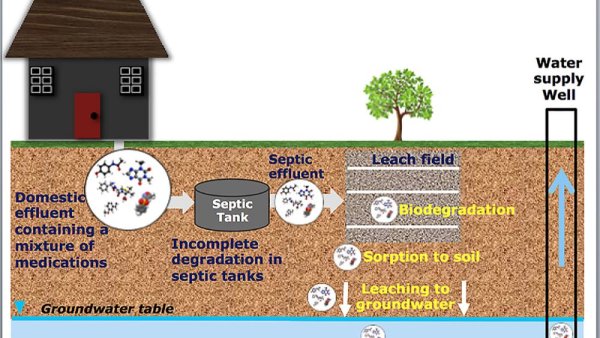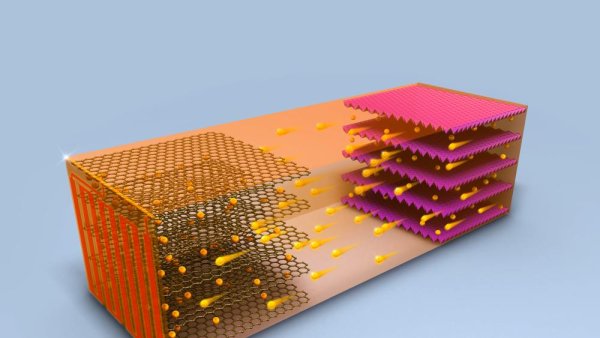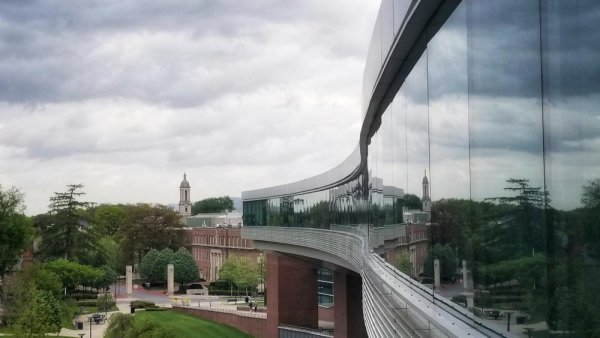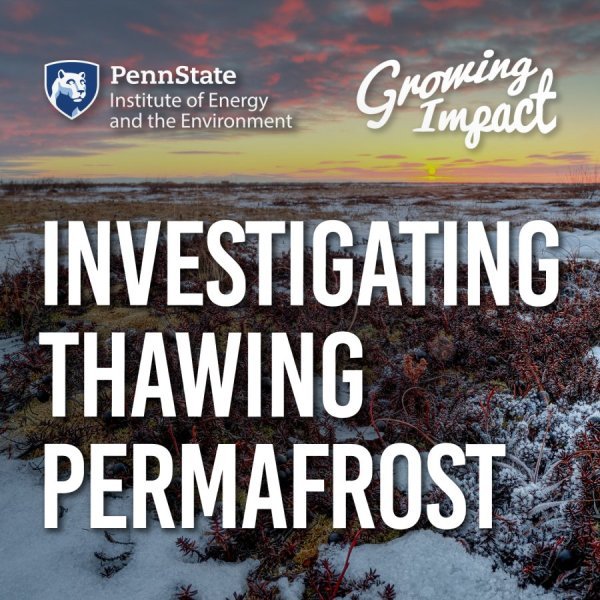Penn State chosen by Department of Energy to help modernize the power grid
| psu.edu
In an effort to modernize and reimagine the United States' power grid, Penn State researchers have qualified for a highly selective, innovative competition sponsored by the U.S. Department of Energy.
Penn State Hazleton students work on engineering project for Bellefonte
| psu.edu
A group of engineering students at Penn State Hazleton is already getting the opportunity to put their knowledge and skills to use on a real-world project. They are working on designing a drinking water protection system for the borough of Bellefonte on its historic Big Spring, which provides water for about 9,000 customers.
Re-Imagining Energy: Generating Energy
| psu.edu
Penn State researchers are developing a range of innovative technologies to harvest the sustainable energy of natural processes to power our future. Part one of a five-part series.
Re-Imagining Energy: Storing Energy
| psu.edu
Penn State researchers are at the forefront of a revolution in materials that's enabling batteries that charge faster, last longer, and are safer than conventional batteries. Part two of a five-part series.
Larger cities have smaller water footprint than less populated counterparts
| psu.edu
Global sustainability is important now more than ever due to increasing urban populations and the resulting stress it can have on natural resources. But increased populations in cities may lead to greater efficiency, as a team of Penn State researchers discovered when they analyzed the water footprint of 65 mid- to large-sized U.S. cities.
Lab Bench to Commercialization 2018–19 grant recipients announced
| psu.edu
The Eberly College of Science's Office for Innovation has awarded three faculty members $75,000 each toward commercializing intellectual property from their research.
Carbon dioxide-to-methanol process improved by catalyst
| psu.edu
Dramatic improvements have been made to the process of converting carbon dioxide, a greenhouse gas, to methanol, a fuel and building block for a wide range of everyday materials, according to Penn State researchers.
New Faculty Academy members continue work on student engagement projects
| psu.edu
Four new members were accepted this year into the Faculty Academy, which provides funding for educators to create engagement opportunities and models for students on the local, regional and national level.
Sankey first online educator named Faculty Academy Fellow
| psu.edu
Haley Sankey has always enjoyed finding creative ways to reach out to her adult learners. Now she’s hoping to use that creativity to improve learning on campus and beyond. Sankey, an assistant teaching professor at the John A. Dutton e-Education Institute, recently became the first Penn State World Campus faculty member selected as a fellow in the Faculty Academy for Engaged Scholarship.
Small amounts of pharmaceuticals found in north central Pa. rural well water
| psu.edu
Drinking water from wells in rural north central Pennsylvania had low levels of pharmaceuticals, according to a study led by Penn State researchers.
Self-heating, fast-charging battery makes electric vehicles climate-immune
| psu.edu
Californians do not purchase electric vehicles because they are cool, they buy EVs because they live in a warm climate. Conventional lithium-ion batteries cannot be rapidly charged at temperatures below 50 degrees Fahrenheit, but now a team of Penn State engineers has created a battery that can self-heat, allowing rapid charging regardless of the outside chill.
Three new co-funds join Institutes of Energy and the Environment
| psu.edu
Three faculty members recently joined the Institutes of Energy and the Environment (IEE) in three different areas of expertise. Two are in the Donald P. Bellisario College of Communications, and the other is in the College of Earth and Mineral Sciences. This is the first time that IEE has had co-funded faculty in the Bellisario College.

